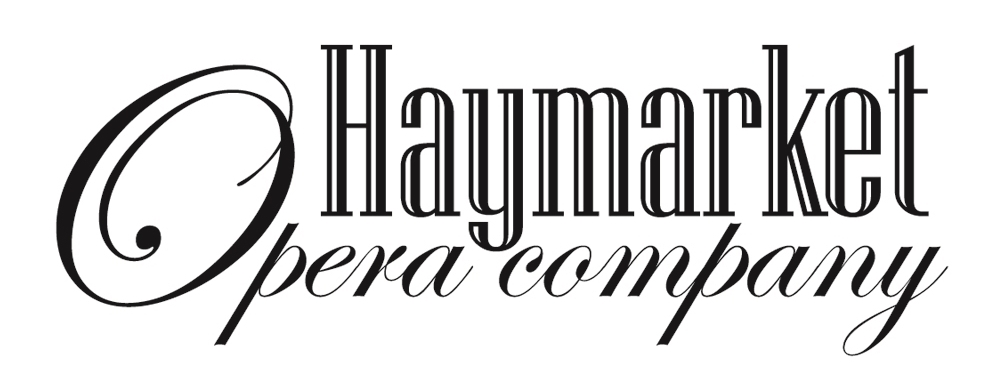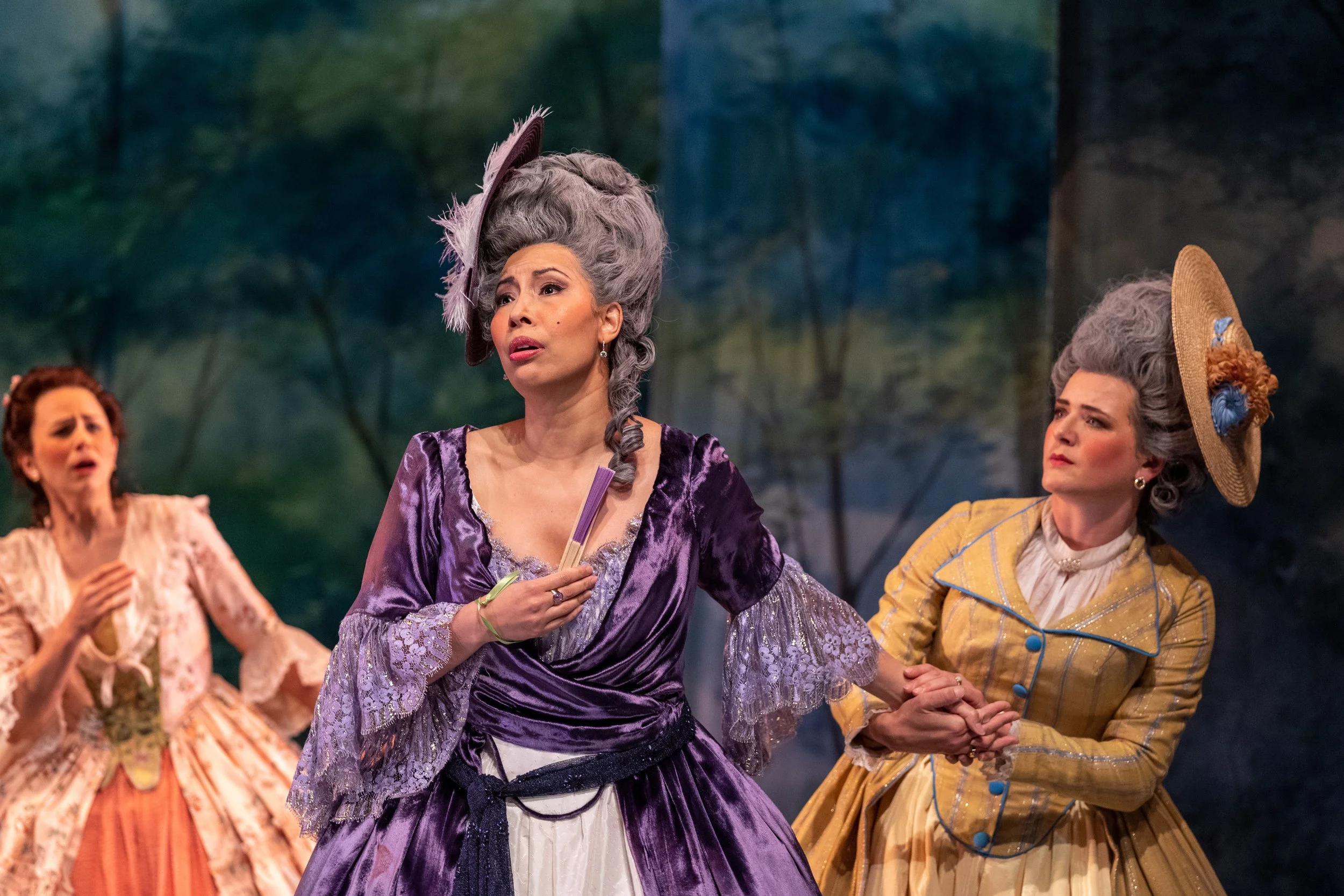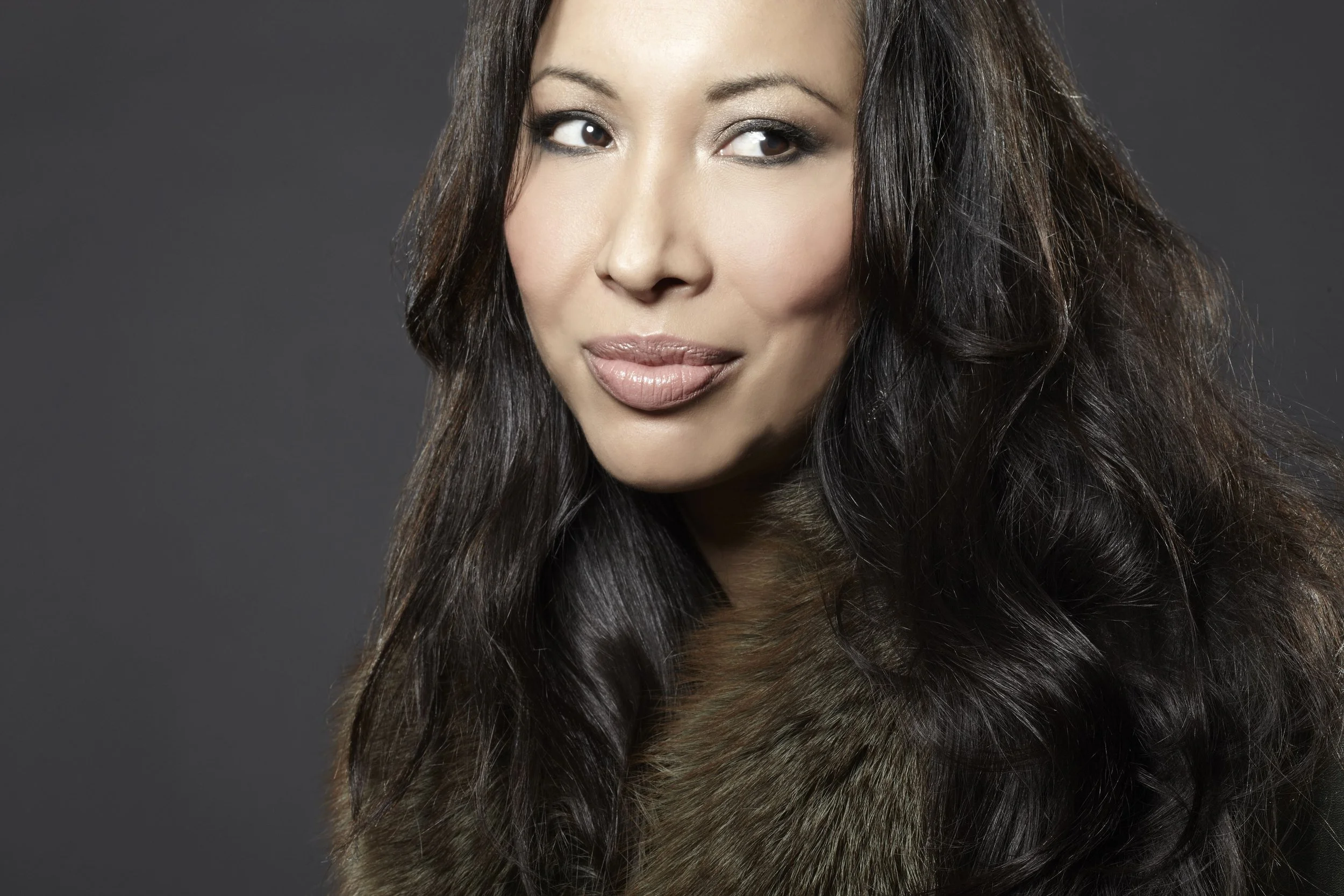Soprano Nicole Cabell on Alcina, Haymarket, and the Ravinia Festival
In late August Haymarket Opera brought a semi-staged production of Handel’s Alcina to the iconic Ravinia Festival. I was honored to portray Alcina in this performance alongside my colleagues Elizabeth DeShong, Emily Fons, Erica Schuller, Eric Ferring, and David Govertsen.
I knew with a cast of this caliber, under the direction of our sensitive and imaginative conductor Craig Trompeter as well as our ever-inspiring director Chase Hopkins, we would be a success. In reflecting on the concert I’m happy to say that we did just that, having performed to a full, enthusiastic house of Haymarket Opera and Ravinia fans. We were met with a very happy standing ovation, and this made me beam with pride for Haymarket Opera.
The Martin Theatre and Handel’s Alcina on stage (2025). Photo: Patrick Gipson
Our performance took place in the Martin Theatre, which is the perfect venue for more intimate styles of music and theater. At over 120 years old, the Martin Theatre is amongst the oldest venues at Ravinia, and I found this so appropriate as Haymarket Opera’s focus is on historically informed interpretations of the earliest operas. Granted, this theater wasn’t original to the time period of Handel’s Alcina, but as far as American music festivals go, Ravinia and the Martin Theatre in particular are among America’s most historically significant. One could feel the inspiration in the air from multiple generations of legendary artists having left their mark in that beautiful hall.
In all of my years of performing, Alcina happens to be the only opera by Handel I’ve sung. The first time was nearly ten years ago at the Grand Théâtre de Genève in Geneva, Switzerland, and the second was here, at Ravinia. Both occasions found me singing alongside seasoned Handel interpreters and I so very much enjoyed soaking up their expertise of the style.
The sorceress Alcina is a particularly enjoyable character to sing, not least because she is a “bad girl.” She has enchanted countless men, eventually tiring of them and turning them into animals or inanimate objects to occupy her realm. Everything beautiful and lush surrounding her and her victims is not real. It’s all the illusory product of her sorcery, and eventually she is found out and stripped of her power.
Erica Schuller, Nicole Cabell, and Emily Fons in Alcina (2025). Photo: Patrick Gipson
Underneath it all, we must understand that Alcina has created this world through intentions that can be interpreted in many ways, and I’ve always chosen to think of her as a very lonely, lost soul who happens to possess magical powers. This combination has led to the nightmare we find ourselves in when the opera begins. Underneath her rage and frustration is the pain of real love having been betrayed. It’s a fascinating exercise in creating a character that is both wicked and also quite relatable in her sadness and anger. It’s also a topical, cautionary tale of what can happen when instability meets unfettered power.
The experience of performing at Ravinia is a significant milestone for Haymarket Opera, a company that is just 15 years old. Despite how young the company is, Haymarket has quickly entered the Chicago classical music scene as a major player, not only garnishing critical praise and recognition but also attracting a fervent fan base that is intrigued by the very things that make Haymarket stand out.
Haymarket’s orchestra is made up of expert early-music artists who have mastered period instruments. Their productions feature historically accurate sets and they make a point of including Baroque dances (which many companies might cut for brevity).
Nicole Cabell in L’Amant Anonyme (2022). Photo: Elliot Mandel
This was what initially drew me to Haymarket in 2022 for their production (and subsequent recording with Cedille Records) of Joseph Bologne’s L’Amant Anonyme. That production felt authentic in every way, down to the costumes and beautifully painted set, as well as the inclusion of spoken French dialogue. All the company members of Haymarket Opera treated their artists with respect, collaborating with us every step of the way. I knew I wanted to work with Haymarket again after that production and am so very proud to have been part of their first concert with the Ravinia Festival.
Judging from the audience response to Alcina, I anticipate a healthy collaboration of Haymarket Opera and Ravinia into the future. There are so many beautiful and interesting Baroque operas audiences are eager to hear in an authentic fashion, and I can’t imagine a better company to present them than Haymarket Opera.
Learn more about Haymarket’s 2025 performance of Handel’s Alcina.
About the author
Nicole Cabell, the 2005 Winner of the BBC Singer of the World Competition in Cardiff and a Decca recording artist, is one of the most sought-after lyric sopranos of today. This season Cabell appears as Amine in Dédé’s Morgiane with Opera Lafayette, in concert with the Rochester Philharmonic, and in recital at the Harris Theater in Chicago.
Last season Cabell made both a company and a role debut when she sang Donna Anna in Don Giovanni with the Royal Swedish Opera, and returned to Tucson to perform Poulenc’s Gloria and a solo recital. Previously Cabell returned to the BBC Proms for a concert of George Walker’s Lilacs, before performing the Countess in Le nozze di Figaro with the Pittsburgh Opera. Further opera performances included Bess in Porgy and Bess with Opera Carolina and North Carolina Opera, and concerts of Clara in the same opera with the NDR and Alan Gilbert at the Elbphilharmonie in Hamburg. In concert, Cabell sang Messiah with the Seattle Symphony, Vaughan-Williams’s Sea Symphony with the Atlanta Symphony, and Mahler’s Symphony No. 2 with the Rochester Philharmonic. Cabell made her Ravinia debut in 2002, during her first season with Lyric Opera of Chicago’s Patrick G. and Shirley W. Ryan Opera Center. Haymarket’s Alcina marked her tenth performance at Ravinia.
About The Haymarket Review: This new digital publication including thoughts about the work produced by Haymarket is designed to deepen our connection to audiences, nurture and feed audience curiosity about historical performance, offer critical opinions and thoughtful reflections on our performances, and provide a forum for Haymarket and its audience to connect through sharing insights, opinions, learning, and expertise.






